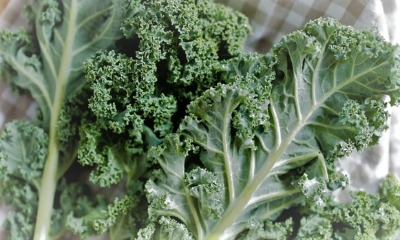 Can turtles eat kale can be a question posed to turtle owners who are weighing the benefits of adding it to their pet’s diet. There can be several reasons why you may want to consider adding kale or other leafy greens as a regular part of your pet’s diet. Eating kale can be riddled with a number of potential negative symptoms, but having awareness of these factors can help to ensure that any benefits outweigh the negatives.
Can turtles eat kale can be a question posed to turtle owners who are weighing the benefits of adding it to their pet’s diet. There can be several reasons why you may want to consider adding kale or other leafy greens as a regular part of your pet’s diet. Eating kale can be riddled with a number of potential negative symptoms, but having awareness of these factors can help to ensure that any benefits outweigh the negatives.
Kale is a type of cabbage in the same family as broccoli, collard greens and mustard greens, but is known for its dark green color and ruffled leaves. The plant originated in Asia Minor and migrated across Europe with the Romans. It can grow well in cold climates and has grown popular due to its many apparent health benefits when eaten by humans, including antioxidants and other vitamins. When it can be digested easily, kale can have many health benefits for your pet.
However, kale is not recommended as a primary source of food for several reasons. Since the leaves can get stuck in their throat or mouth, they may cause your turtle to feel pain or discomfort by being lodged in an area that can’t be reached with its tongue. Also if the body does not digest the leaf initially, it can potentially become impacted in its digestive track causing another type of issue like constipation or diarrhea. Kale might also contribute to bloat issues if eaten without proper hydration while suppressing normal appetite.
Key Benefits Of Kale For Pet Turtles:
- Contains Antioxidants
- Contains Fiber
- Has Anti-Inflammatory Properties
- Supports Bone Health
- Contains Vitamin K
Did You Know? In the case of turtles, you can add any type of kale to your pet’s diet as long as it is organic. If it isn’t organic, then there can be more toxins and contaminants added to your turtle food than can be already harmful enough. Seeds from plants are also not recommended for turtles since they can cause intestinal blockages or pass through without being digested at all.
Conclusion
By considering what can possibly make kale dangerous to turtles in order to plan ahead for this, you can ensure that benefits outweigh the negatives. This can be done by eating the type of kale regularly and giving your turtle plenty of sources of fiber, calcium, water, and hydration when you do. In addition, it can also be helpful to make sure that any source of pet food is organic.

I have a big soft spot for turtles. I grew up near a pond that was full of snapping turtles. Now and then I’d see them crawling across our front yard, which was always exciting.
Now I write about turtles for this website as a fun side hobby. Glad you stopped by!
